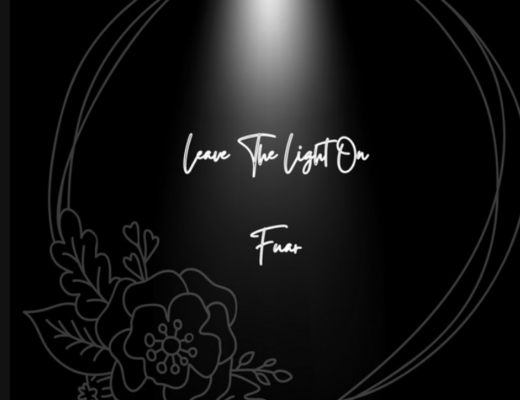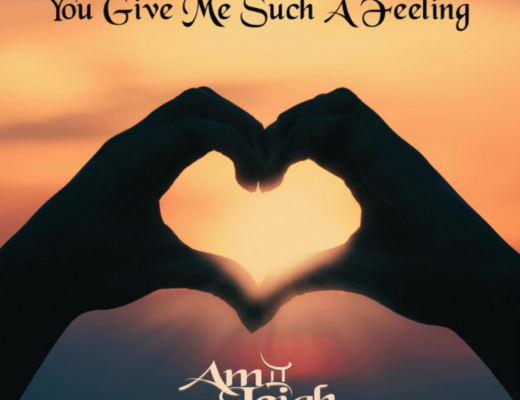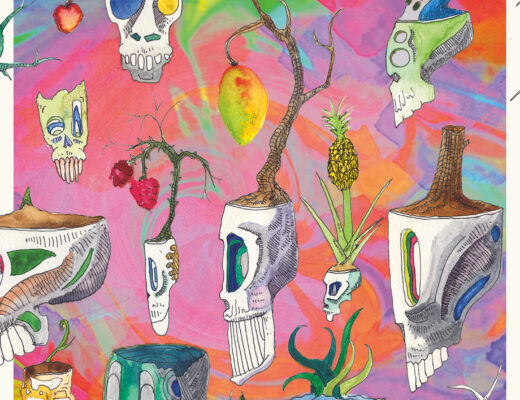In this no-prisoners-held interview, PH Mazza discusses the unsettling elements and twisted cinematic grandeur that define his sound. Mazza shares insights into the influence of legendary artists like Elton John, David Bowie, and Lou Reed and candidly explores his intentions behind the album, his disdain for mainstream conformity, and his commitment to creating art that challenges and provokes. If you have always wanted to step inside the mind of a visionary, now is your chance.
PH Mazza, thanks for giving us the opportunity to sit down with you to discuss your darkly baroque eponymous debut album. We’d love to know what the interplay between jarringly unsettling elements and the cinematic opulence says about you as an artist.
“Obscurely Baroque… Unsettling elements and cinematic opulence… I like it.
Hello A&R Factory team and readers. It’s a pleasure to be here and be part of what will be my first interview.
Not that I believe I’ll be called for many others in my life haha but it’s a price I pay.
What are the emotional and philosophical themes which underpin the release?
Not to be a suck-up. Some might call it art-sabotage or call me arrogant, but none of this went through a convoluted intellectual filter neither was it meticulously planned, yet it came naturally.
I felt and lived all of this, but didn’t disguise or reduce anything to be socially/artistically accepted. This is an album made for, when lining it up with other things I like, I can say: Yeah
Which artists have been essential to your inspiration?
I can never distance myself from the influence that Elton John’s piano style and his way of creating harmonies have had on my life as a whole. He was my first and still is my greatest music hero, especially the early albums, citing the self-titled “Elton John” from 1970 and the raw energy from “11-17-70”.
The grandeur of the harmonies and the orchestra conducted by Paul Buckmaster undoubtedly resonates here and there in everything I set out to do.
Despite being rivals, the presence of David Bowie, especially in his “Station to Station” (1976) to the Berlin trilogy era, also mentioning his work with Iggy Pop on “The Idiot,” is responsible for a large part of the atmosphere- the dark and eery aesthetic that I tried to reproduce.
I couldn’t avoid mentioning the cruel and mocking tone in which Lou Reed writes his lyrics and sings them cynically, like a punch in the stomach, and certainly was one of my main discoveries while developing my writing skills as well as the way I would like to express the messages that I purpose.
Last but not least, I still mention here the names of Kate Bush, Tom Waits, Nick Cave, and Talking Heads for their courage to dance to their own rhythms throughout their careers that had few mistakes because they never justified any of their works. They do what they want to do, it’s their truth.
What were your intentions with the debut album?
The most selfish feeling possible of pleasing myself: to be able to feel the relief from managing to do a substantial work that I can still be proud of in 40 years ahead if it was my only one
For someone who graduated from Law School and tried the corporate world due to external pressure, this personal validation arises as an honour and respect to myself for all the years of consequential frustration for doing something I didn’t want in the first place.
If anything I did bother someone, I take that as credit too.
How did you discover your preference for disturbing the comfortable and comforting the disturbed rather than creating euphonic art?
First of all, having no regrets when it comes to creation, being unbearably unapologetic.
From some point in my teenage years, I began to be more interested in arts that caused me a strangeness, something that I couldn’t classify or that demanded me listening more than once to understand the artist’s intention.
…The provocations within the lyrics, the tones, the energy and aura created… something that would take me out of the comfort zone of radio-friendly stuff and that’s why Tom Waits, Lou Reed, and Kate Bush always fascinated me a lot.
I think it was Rick Rubin who once said that the listener’s opinion is the last thing that comes when creating music, but I believe it should never come at any part of the process.
Art, considering it as its unique appearance described by Walter Benjamin as “aura”, must come, just like the uniqueness of life, from the deepest, most disgusting, and horrifying core hidden behind all social masks: it’s the intrusive thought that comes out soundly or not (John Cage understood it very well) from the devils and voices of the mind.
Besides that, it’s fast food.
Do you think too many contemporary artists have fallen into the people-pleasing trap of playing it safe and have dulled the music industry?
I think it’s the evilness of pop music in general.
Every generation had its own formulas and ways of making money from the music market… which is not necessarily bad, the 70’s explored and valued the technical-creative capacity of artists for the mainstream.
Currently, with all the revolution/intellectual impoverishment of “knowing a lot, but knowing nothing” of post-social media society, it undoubtedly accelerated that decadent process.
Artists record 1:30-minute songs to be successful on TikTok through bizarre and dystopically stupid dance videos…
… Besides all the streaming distribution on platforms like Spotify that operate on the edge of a pyramid scheme classification at the moment that only benefits pop entities at the top of that food chain who don’t even count on this kind of income with royalties anymore…
Everything is ingeniously created for money to generate money and artists enter the game because, unfortunately, they need to just survive.
I don’t blame the independent community for wanting to be pop music, but I wouldn’t feel bad if I knew that Spotify or Universal Music CEOs had an airplane accident.
It’s an audacious move to self-produce a debut LP backed by a big orchestra, does pretension factor into your execution of the album?
Hahaha and it was also a nightmare for the sound engineers who mixed the album.
In fact, all the orchestra elements, woodwinds, and brass were made with digital instruments by myself because it would certainly be financially unfeasible to transmit all those ideas by paying that many musicians and hours at the studio, which I don’t consider bad because it challenged me to learn to program and produce alone what came to my mind. It was a new language acquired.
I wouldn’t say that ambition influences the album’s execution, but it is the engine that prevented me from creating my own barriers and having imposter syndrome to achieve what I wanted.
I also believe that ambition is an external perception because the artist is just exploring ideas without thinking too much about that kind of thing.
Now that the album is out in the world, what’s next?
There’s still a lot to be said, but since making an album is very expensive for an independent artist as I am, it also depends on how many problems I’ll have with banks and money haha Because I already have about 6 albums composed, but not recorded so far.
What I can anticipate is that, if what I do causes angst, I guarantee that I’m still far from the maximum discomfort I could cause: this is just the beginning.-
Slip into the theatrically macabre avant-garde eponymous debut album via Spotify, and follow PH Mazza through the haunted corridors of his mind on Facebook and Instagram.
Interview by Amelia Vandergast




No Comments